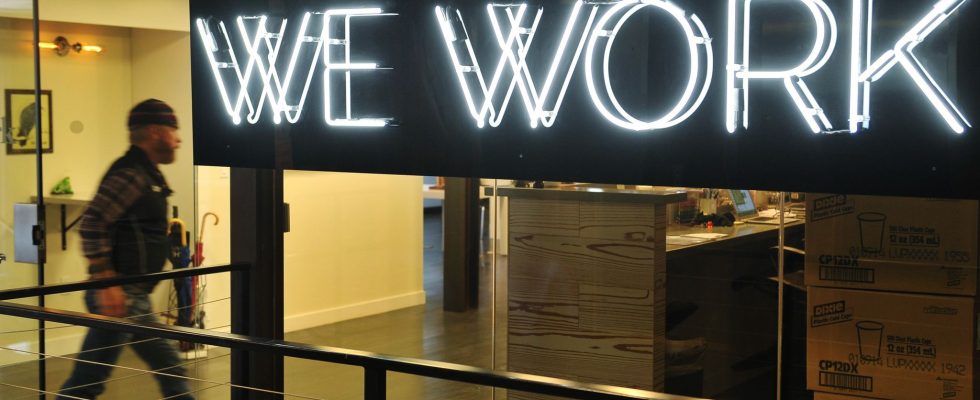Remember, when France was confined like a large part of the world, these app-based companies allowed us to continue to live more or less normally. Many employees in forced telework had thus been able to continue to keep a link with their company thanks to Zoom, in particular. While for the most cautious among us, Frichti and others allowed to have groceries delivered to your home, without meeting the slightest person and thus avoiding any potential contamination. These programs and applications had appeared long before the pandemic, but the period was largely favorable for their development. Harder is the return to normal: the number of users has dropped and the competition has largely developed. Overview.
Zoom asks its employees to return to face-to-face
By 2020, the company’s revenue had more than tripled; they even continued to increase in 2021, by around 55%. But progress slowed sharply last year: in the post-pandemic period, the video conferencing company saw its profits plummet. To cope with this complicated period, the company recently asked its employees who were still fully teleworking to return to the office. Zoom presented remote work as an indefinitely viable model. However, three years later, it seems that the company is no longer satisfied, especially as competition rages in the sector where the expansion of remote work is encouraging competitors, such as Microsoft, to upgrade their video offers.
Zoom said the new face-to-face policy is meant to put the company in a “better position to use our own technologies, continue to innovate, and support our global customers.” In other words: bringing employees back to the office could allow it to be more efficient. Earlier this year, Zoom announced that it was cutting 15% of its staff and that senior executives would take significant pay cuts.
WeWork, the coworking champion on the verge of bankruptcy
Just after the periods of confinement, the coworking company WeWork had benefited from the desire of certain companies to reduce their real estate costs in the face of employees fond of teleworking. But teleworking precisely has emptied the offices and the company, faced with plummeting demand, is struggling to rent. The American company, which owns 777 office buildings and 906,000 workstations around the world, recently declared that it had lost billions of dollars during the first half of 2023. To the point of warning, on Tuesday August 8, the stock market policeman American that she feared for her survival. “There is substantial doubt as to the Company’s ability to continue as a going concern,” WeWork said in a filing with the Securities and Exchange Commission (SEC). On the stock market, on Wall Street, WeWork is worth less than 300 million dollars, against 700 million in March and 1.4 billion in January.
However, the Covid is not the only cause of the evils of the coworking company. Already, in 2019, it had come close to bankruptcy, forcing the main Japanese shareholder to inject 10 billion dollars to maintain a fragile balance. In addition, its competitors in the field such as Morning (subsidiary of Nexity in Île-de-France), or Wojo (subsidiary of Accor), are posting good results despite the post-Covid period.
Getir, Frichti… “Quick trade” struggling
Getir, Frichti, Gorillas… Have fast delivery brands gone out of fashion as quickly as they promised home delivery (in 15 minutes)? Many of them, two years ago, wanted to introduce “quick commerce” in France, that is to say the rapid delivery of shopping at home, under the impetus of the Covid period conducive to online shopping. But the enchanted parenthesis seems well and truly closed. Gorillas and Getir were liquidated in mid-July by the Paris Commercial Court.
For Getir France and Gorillas, the placement in compulsory liquidation “was inevitable due to the difficult economic climate, a hostile regulatory environment and the absence of a buyer”, had underlined the company in a press release, pointing in particular to the responsibility for the end of “dark stores” in France. A few weeks earlier, the government had in fact decreed that the “dark stores” (these premises where the products to be delivered are stored) were warehouses, and not businesses, paving the way for town halls to regulate this activity – and even the closing of certain premises.
Regarding the fate of Frichti, another French subsidiary of the Turkish group Getir, with more than 300 employees, “the Paris commercial court has decided to extend the receivership procedure until the beginning of October”. Furthermore, according to The Conversationthe other explanation for the difficulties encountered by “quick traders”, in addition to the end of the Covid period, is the rise of pedestrian drives, in particular driven by large retail brands such as Leclerc and Auchan.
